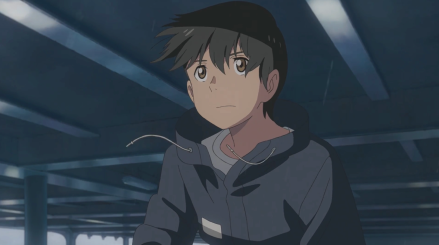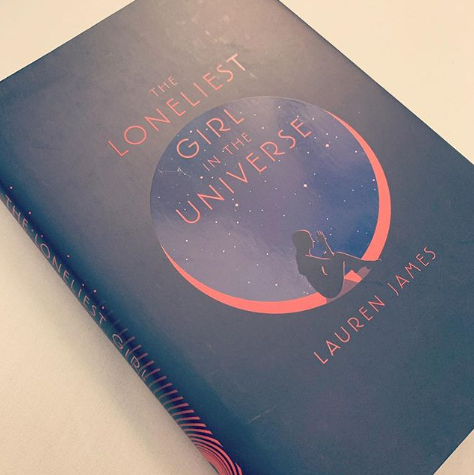Hi there, it’s been a while.
There’s a lot I want to say to you, so I’ll start where I always once used to in my reviews: some background context.
I’ve been time traveling.
!!
(Kidding ~~)
But I dusted off the keyboard and propped open the cafe’s awnings—only to realize that my last post was almost a year ago?? Yeah, it sure does feel like time travel. And as the case is with most travelers, I’ve been irresponsible with time.
Anyway, hello from the future!
My life is very different now, you know?
At some point, I apparently came in and edited my blog’s sidebar bio so that it no longer read that I was a “teenager.” Although, when I think about it, I wasn’t a teenager when I last talked to you on here, either. Regardless, since 2021, I’ve not only completed my undergraduate degree but also a 2-year master’s program AND started my first “adult job” this past fall.
I’ve grown up ahead of the blog, I guess.
With every new year that rolls in (By the way, I hope yours has been kind so far.) I think about this place. Really, I do. This online safe space where I used to greet readers and see them out each hour of the day. It truly is our corner of the internet.
We sure were busy back then, weren’t we? Hah!
All this talk about growing up brings me to what I really wanted to ask you.
//
Am I still . . . weathering with you?
//
Yesterday, I finished reading YenPress’s release of Makoto Shinkai’s Weathering With You novel. It’s a fantastic little book (and it’s actually little, only 180 pages). As I slipped the dust jacket back around the green hardback and archived it on my shelves, I couldn’t stop thinking about how much I love Shinkai’s work. Especially Weathering With You.
Last spring, I was lucky enough that my hometown theater had showings for Suzume, and that encounter, too, had me tumbling down memory lane. Discussions over many of Shinkai’s works have been “served up” here at the cafe over the years. Why I didn’t write about Suzume DESPITE it being my new favorite of his? . . . I had a lot on my mind at the time.
But back to Weathering With You, ah, my heart! It’s hard to believe that the film (and the book) will be celebrating 5 years this summer. As I’m revisiting it here, I’m going to spoil the end of the story, so go watch/read it if you haven’t!
Reading the novelization, I couldn’t help but re-realize how rough young people have it these days.
!!!
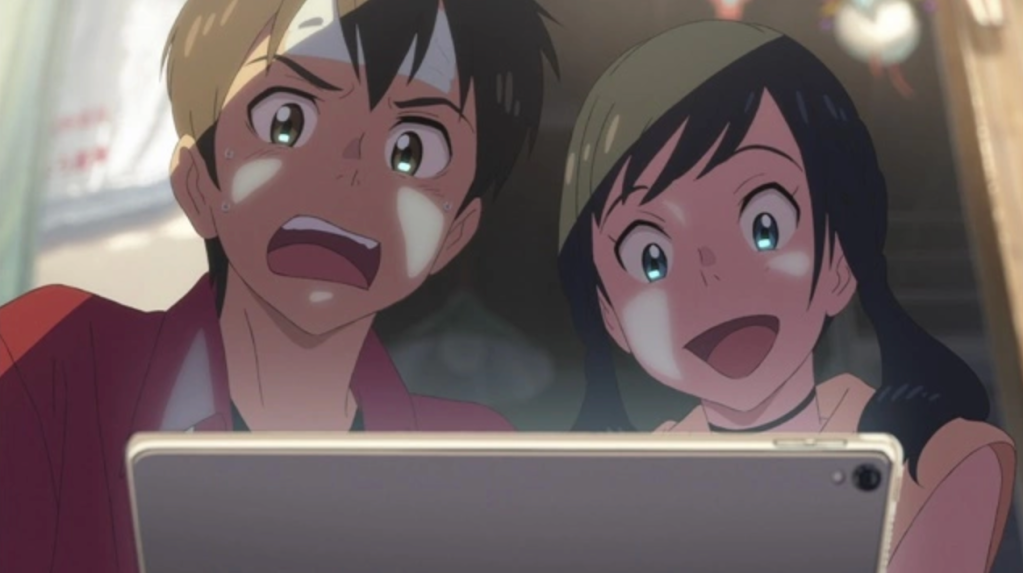
Seriously! If you make it to the end and can only despise Hodaka for effectively drowning Tokyo for love, then you’ve missed the entire point of the story.
How did Hodaka, a child, end up so desperate and starved for connection in the first place? Who put him in a position where all he felt he could do was run further and further away from the responsibility that comes with growing up?
We did. The adults in his life did. And we continue to fail adolescents just like him when we pressure them LIKE ADULTS and then treat their feelings as if they were TODDLERS throwing just another tantrum.
This seems unrelated, but in my recent rewatch of Fire Force (still a banger btw), Captain Obi proudly says that being a grown-up means “caring more broadly and deeply.” From our first meeting with Hodaka, we are already dealing with someone who feels tried and exiled from his hometown. Island life is suffocating, yet at the same time, he is neglected by those few with any real stock in him. With ambition, he leaves. And when he finds the adults in Tokyo just as unwilling, neglecting, and even downright unkind, he’s willing to abandon that world, too.
Caring more broadly and deeply. Ah. Perhaps we wouldn’t have found Hodaka’s entire world cradled in the care of Hina’s tiny, tired hands if the adults back home cared for him an ounce more than they had. He’s genuinely a good kid, too! Traumatized and hungry, all Hodaka wants is a job that can sustain him a little longer while he sorts life out. Thinking about it, it’s sad how it all went down. Thankfully, in the novel, one of Hodaka’s Tokyo “caretakers” and friends is able to learn about the hope that can come with adulthood before some of the others do:
Kid, I’m gonna grow up just a little earlier than you. I’ll become a role model to you and Hina whether you want it or not. I’ll be the kind of adult who makes you want to grow up faster so you can be the same. I’ll be nothing like Kei—I’ll be a fantastic, amazing, super adult like no one’s ever seen.
Natsumi Suga
Tokyo remains plunged underwater in the epilogue, and as gut-punching as the advent is, I closed the book satisfied that Hodaka—that Shinkai—was able to wake [the viewing/reading] society up to the suffering of its young. The endless rain is not only a karmic effect of neglecting an ages old superstition but also a reflection of the way we’ve continuously sacrificed the innocent and the good for our own benefit. Maybe the storms currently ravaging our world are starting to spark the same eye-opening effect that Hodaka and Hina’s rain has on theirs.
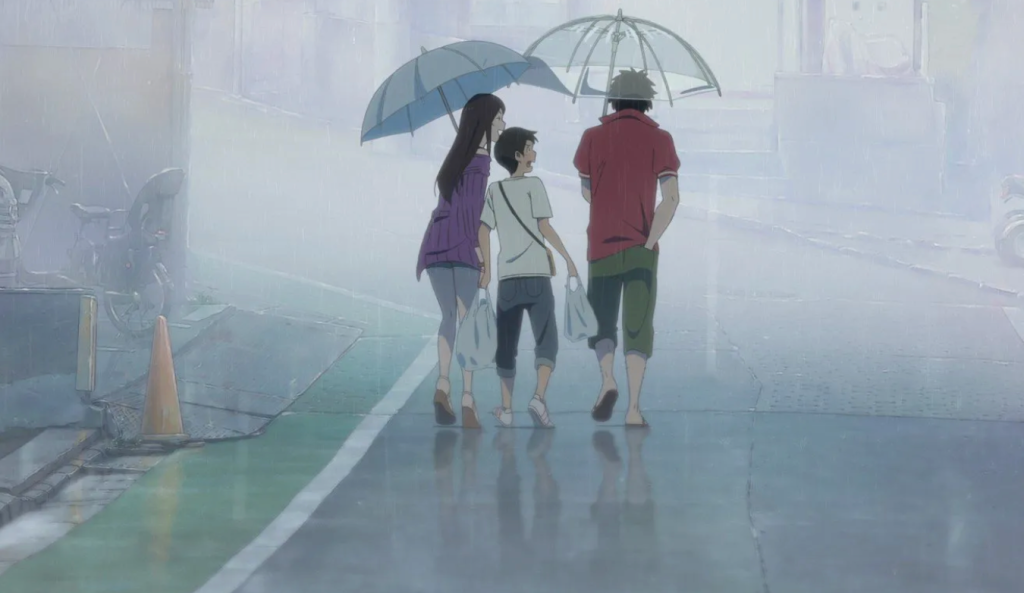
I didn’t intend on writing a current issues post, so let me circle back. Tenki no Ko, the Japanese title, translates more accurately as “Child of Weather” in English. Its localized title, however, is also lovely. “Weathering” sounds as if Hodaka and Hina are simply going around making the weather change, which is exactly what they do.
But also, “weathering” is the process that naturally wears down rocks and surfaces, leading to erosion. Finally, to “weather,” as a verb, means to come safely through something (like a storm). When Hodoka and Hina go weathering, I like to think that they are quite literally enduring life the way they’ve only recently discovered how:
By surviving the storm together.
When I asked towards the beginning of this post whether I was still weathering with you (cause that’s not confusing at all!), I was wondering if WE have been able to endure this long rainy season apart from one another—a blogger to his fellow blogger buddies and dearest readers—sincerely confused, anxious, and uncertain about whether we’ve weathered this distance ok.
Have we? Do you remember me?
Do you remember what we used to do here?
Because honestly, I couldn’t forget about you.
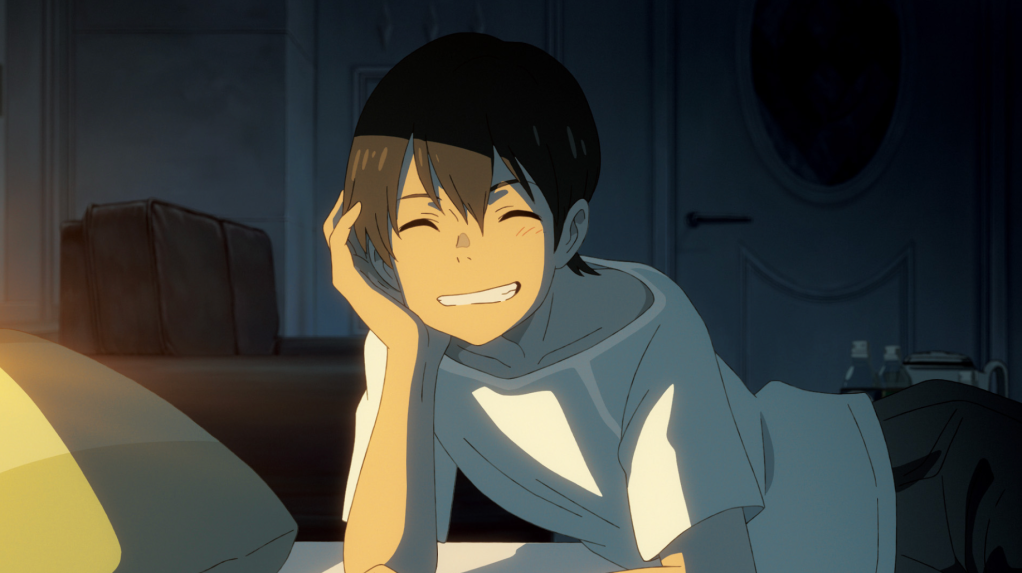
Thank you for having me back. For keeping the cafe warm.
I’m Takuto.
It’s very nice to meet you again.

